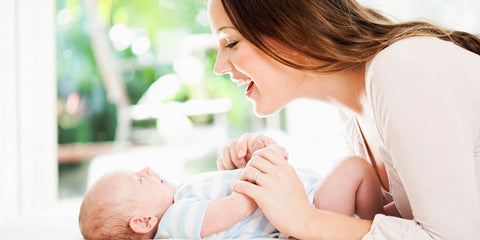Teaching Your Little Ones to Improve Their Speaking Ability
From the moment babies are born, they tend to make a lot of sounds, which includes cooing, gurgling, and of course, crying. And then, before you know it, your baby will utter their very first word. Be it “mama, “dada,” or something else, it’s a huge milestone and an exciting time for parents. But as your little one gets older; you might wonder how their language skills compare to children of a similar age. It is important to know that children learn to talk at different speeds. So, if your little one talks later than an older sibling or their friends, there is nothing to worry about. However, some toddlers need a little extra help when learning to talk so we’ve got several ways you can help your little ones beat their gums.
Speak To Your Little One

Just because your little one can’t talk; does not mean you should not speak to your baby anyways. The more you talk and express yourself to your little one, the easier it’ll be for your toddler to learn the language at a younger age. Narrate or explain the things you’re doing to your little ones; simple activities turn into story-time for your child to have a listen. Let them know about your day or talk about anything else that comes to mind. Be sure to use simple words and short sentence when possible. You can also encourage talking by reading to your toddler as you move through your day. You can read the recipe while you’re cooking together. Or if you’re enjoying a walk around your neighbourhood, read street signs as you approach them. You can even sing to your child, maybe their favourite lullaby or your favourite songs.
Name The Items

Some toddlers will point to an item they want instead of asking for it. What you can do is act as your child’s interpreter and help them understand the names of certain items. For example, if your toddler points to a cup of juice, respond by saying, “Juice. Do you want juice?” The goal is to encourage your child to say the word “juice.” So, the next time they want something to drink, instead of just pointing, encourage them to say the actual word.
Praise Your Little One’s Efforts

“Good job” is easy to say, but it’s best to be specific. Label your praise, saying things like, “Good job packing all your toys away.” This reinforces the good things they do, encouraging good behaviour. As your toddler expands their vocabulary, expand your praise. Instead of saying, “Good job,” use “Nice job saying please” or “Nice job saying thank you.” You’re also helping to create a positive feeling surrounding communication, motivating them to keep trying and adding more words.
Read To & With Your Little One

Reading to your child, as much as possible every day is one of the best things you can do to encourage language development. Reading books with and to your little one’s help develop their language skills by increasing their exposure to the language. Stories that rhyme are very helpful for teaching speech and language skills and can help children discover a love of language.
Refrain From Negativity & Baby Talk

While it’s adorable when little ones use words incorrectly or use baby talk, leave it to them. Don’t feel like you need to correct them, just respond with the proper usage. For example, if your little one asks you to “bunnet” their shirt, you can simply say “Yes, I’ll button your shirt.” Toddlers are still learning, so if you continue to meet their efforts with negativity, they’ll eventually stop trying. Expand their words instead of saying that it’s wrong. If your toddler pronounces the word “elephant” wrong, turn it around and repeat in the affirmative, “Yes, elephant.” That’s more helpful than saying negatively, “No, elephant.” By doing this, you’re correcting without being too blunt. Refrain from repeatedly testing your little one, if you and your toddler are playing, avoid continuously asking what the different toys are called, particularly during playtime as it can get annoying and disturb their fun.
Sign Language

You don’t have to be fluent in sign language to teach your toddler a few basic signs. Parents can teach their babies and toddlers how to sign words like “more,” “milk,” and “all done.” Young children often grasp a second language easier than adults. This may allow them to communicate and express themselves at a much younger age. Sign the word “more,” while saying the word at the same time. Do this repeatedly so that your little one learns the sign and associates the word with it. Giving your little one the ability to express themselves through sign language may help them feel more confident in their communications. Helping them communicate with less frustration can help create a better environment for learning more languages.
